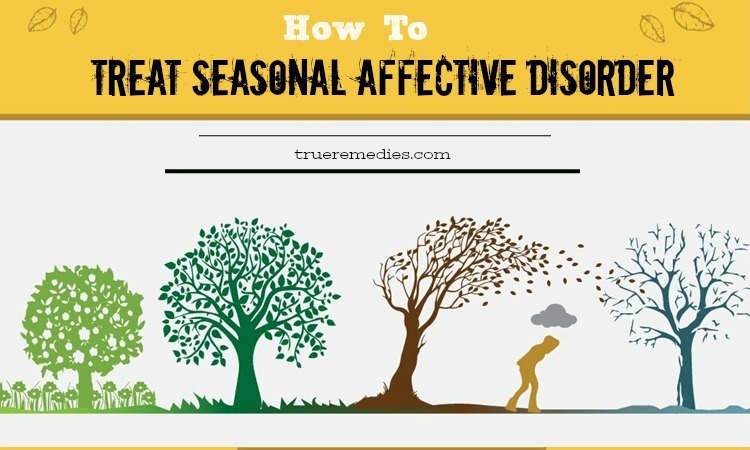Table Of Contents
- I. Should I Let My Baby Sleep On His Stomach?
- II. Why Does My Baby Like Sleeping On His Belly?
- III. Risks Related To This Sleeping Position
- IV. When Can My Baby Sleep On His Stomach?
- V. Should I Place My Baby On His Back If He Sleeps On To His Stomach?
- VI. Can My Baby Sleep On His Belly If Supervised?
- VII. Tips On How To Train A Baby To Sleep On His Back
According to research by a group of experts at Harvard University, the intelligence and success of babies when they grow up are partly determined by the posture of sleeping when they were young. The team of experts conducted the sleeping position survey of more than 350 young children with good health and normal development. As a result, children who love sleeping on their stomachs or sleeping with extended limbs often have higher IQs and better reflexes than other children. Children who like to sleep on their backs and sleep with their extended limbs have the same intellectual development speed. Although baby sleeping on the stomach is somewhat beneficial for their mental development, these experts also recommend that this is a dangerous sleeping position. It can quickly kill children, especially newborns, due to the high risk of leading to suffocation. Experts also said that for children under one age and newborns, the heads are big and bulky, while the support of the neck is not excellent. Therefore, it is difficult for them to turn on his back on themselves. Consequently, it is easy for babies to choke due to blankets and pillows that can block their noses. To know whether the sleeping position is safe for babies or not, you can refer to this article on our Trueremedies site.
- 22 Natural Treatments For Sleep Disorders In Children & Adults
- Children Catch You In The Act Of Sex – What & How To Do
- Top 8 Tips To Soothe A Teething Baby Parents Should Know
Baby Sleeping On The Stomach: When Is It Safe?
I. Should I Let My Baby Sleep On His Stomach?
Baby sleeping on the stomach brings a lot of benefits that mothers may not know
- This sleeping position helps the baby avoid congestion, dry nose, sore throat, and other respiratory diseases. It is especially helpful for babies who are regularly in air-conditioners and children with a history of asthma.
- Many parents are concerned that sleeping in this position will affect the baby's heart and stomach. But in fact, this problem is still not clearly concluded. Instead, according to the results of one study, sleeping on the stomach increases lung capacity and improve the activity of the respiratory system.
- Help your child feel safer. You often see that when placing the baby on his back, he will continuously bend his legs up or use his hands to grab the toes and put them into his mouth. In particular, babies love to sleep on their stomachs because this position is similar to the way babies lie in their mother's womb. Maybe it is unbelievable for mothers, but sleeping on the stomach is the instinctive position that makes babies feel warmest, safest, the most familiar and comfortable.
- Help babies develop motor skills When lying on their stomach, all the muscles of the neck and back are stretched, helping babies prevent head and neck abnormalities[1] and develop motor skills quickly in the future. Babies placed on the stomach are more comfortable to know to roll onto the belly and crawl when the body has started to be healthy.
- Limit vomiting. Lying on the stomach causes gastric acid to be transferred to small intestine rather than the esophagus, so newborns do not vomit as much as when lying on the back.
Because sleeping on the belly brings many benefits, it is advisable to encourage babies to lie on the stomach after birth. However, you should note that only letting your baby sleep on the stomach when you can control the situation. In the first two months, you should do the process about 20 minutes a day, divided into several times, a few minutes each time. When he is three months old, he can be laid on his stomach for an hour, divided into many times. Do not allow your baby to lie on the stomach for too long.
II. Why Does My Baby Like Sleeping On His Belly?
A lot of babies like sleeping on their stomachs since they cannot curl up in the snug fetal position, the way they can when they are on their stomachs. Through the habit, babies will prefer to lie on their stomach after birth. This is to create the same position as when they are still in the womb, giving them the feeling of being protected and safe to go to sleep.
Also, another reason why babies like to lie on their stomachs is that they may have digestive system problems. An adult with a stomach pain often rubs the belly with the hands, or lie on the stomach on a pillow to help relieve the pain. And so does the child.
III. Risks Related To This Sleeping Position
Lack Of Oxygen: While lying on the stomach, the baby's face is to stay close to the bed surface. This makes the amount of CO2 not disperse out, leading to a lack of oxygen around the baby's lying area. The amount of oxygen reaching the baby’s lungs and body cells decreases.
TrueRemedies Partner Solutions

Need a Help from the Leading Expert Online, Available 24/7?
They’re all here and ready to answer your questions online or by phone. Keep asking questions until you get the answer you need.
The Risk Of Airway Obstruction: This can occur when babies burp, milk and some weaning foods in the esophagus can obstruct the airway. Therefore, for infants who are prone to vomiting, pediatricians advise avoiding placing them on their stomachs and using pacifiers to prevent choking.
Hyperthermia: Sleeping on the stomach can cause the baby’s body temperature to increase, especially during the hot summer weather. Therefore, they have a higher risk of fever and dehydration.
Affects Body Function: Sleeping on the stomach may make babies take longer to wake up, less likely to react to sound, and limit body movement[2]
Risk Of Sudden Infant Death Syndrome[3]: This phenomenon happens suddenly with no apparent reason in infants, even when the baby is healthy. According to the National Institutes of Health, sleeping on the stomach is one of the leading causes of sudden infant death syndrome, which is 13 times higher than infants who sleep on their backs[4] [5]
IV. When Can My Baby Sleep On His Stomach?
You can leave your baby to sleep on the stomach when he can do a belly roll by himself, which usually happens around to three-six months. However, you should place your baby to sleep on his back in bed. When he can roll from belly to back, he can handle the problem of sleeping on the stomach better. It has a low risk of sudden infant death syndrome[6] because he can easily roll and lie on the back again.
Besides, you should check your baby to know how he is sleeping, particularly during the nights.
V. Should I Place My Baby On His Back If He Sleeps On To His Stomach?
You do not need to put your baby on his back. Babies and young children under six months of age are not able to turn themselves from their backs to their stomachs while sleeping. That means if put on the back when sleeping, the baby will continue to lie in that sleeping position. As I said earlier, babies can roll from their backs to their bellies at six months of age[6].
VI. Can My Baby Sleep On His Belly If Supervised?
The answer is NO. A baby should not be placed on his belly during sleep even if you keep an eye on him. It is recommended that parents should never put babies on their stomachs to sleep. According to the American Academy of Pediatrics, parents should only place babies on their backs for sleep during bedtime or even naps[7] [8] [9]
VII. Tips On How To Train A Baby To Sleep On His Back
- Put your baby on his back from the beginning of sleep. If you place him on his side, it is a good position for him to turn his stomach down and lie on his stomach.
- When your baby is at least one year old, you can use a blanket to cover him. Use buttons to fix the blanket edges into the mattress after placing him on his back (choose a sheet long in length to facilitate setting it). When attaching the blanket, you should not make it too tight for the baby to suffocate and not too loose for him to easily roll onto his stomach. Keep your baby's feet as close to the blanket edge as possible.
- Or use the way of rolling a blanket, like rolling it to keep infants warm, but this is for babies over one year old. Limiting your baby's limb movements during sleep will make it more difficult for them to roll onto their stomachs. Place your baby in a thin blanket, fold the right edge of the sheet to his left arm, fold the remaining edge to the opposite side, but under his arm. Do not wrap the blanket too tightly and do not use this method for a long time.
Apart from that, you should consult a doctor if your child's sleeping habits make you worried.
Through the above information, make sure you understand more about the phenomenon of baby sleeping on the stomach. You should not be too worried because it is just a sleeping habit for each person.
Read more: 9 Science-Backed Secrets On How To Be A Happier Mom At Home. This article was medically reviewed/fact checked by Dr. Robi Ludwig.









